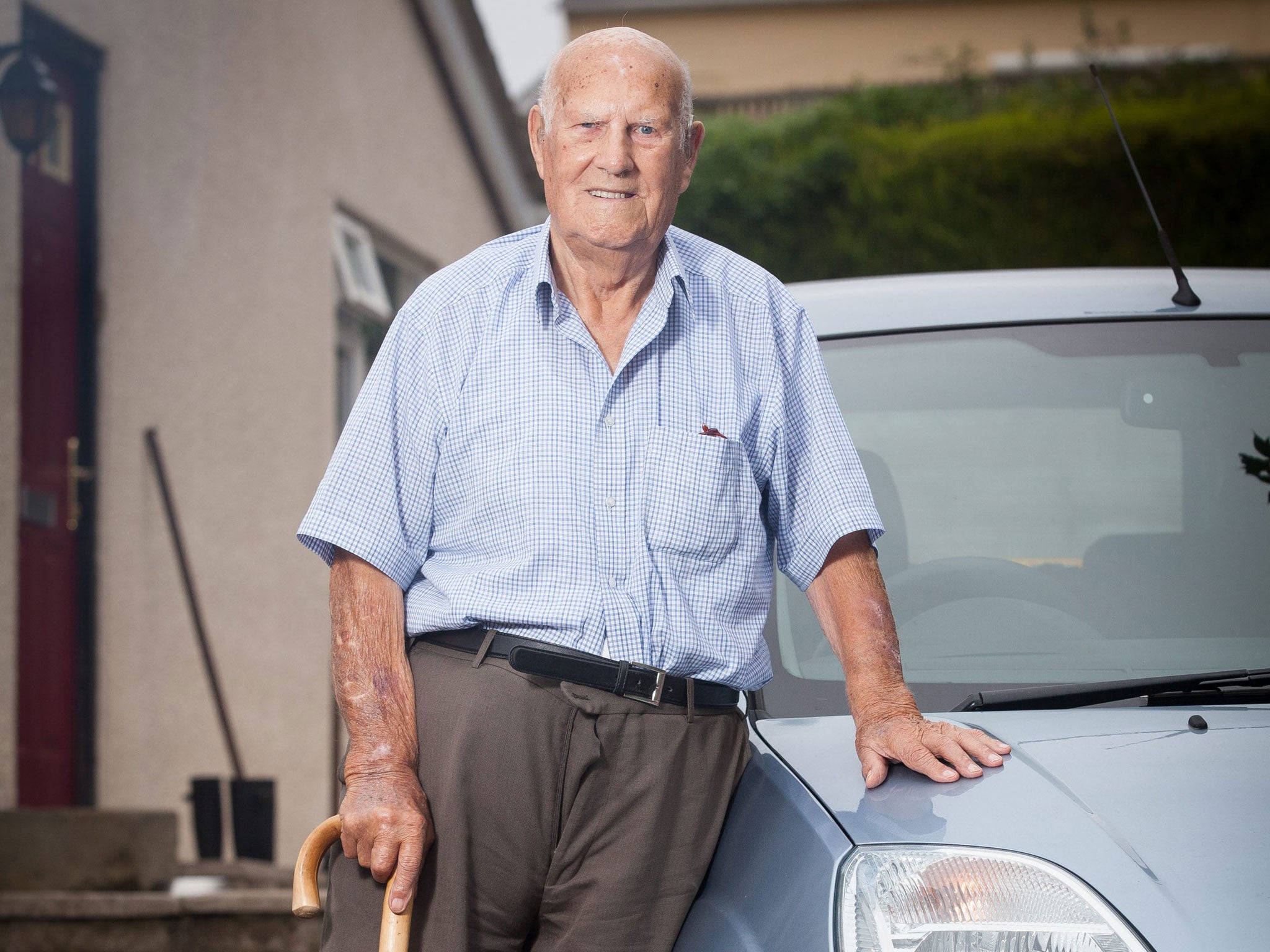Elderly drivers 'are not dangerous' and taking away their licence could kill them, academic claims
'People also think testing old people will make the roads safer — it won’t'

Your support helps us to tell the story
From reproductive rights to climate change to Big Tech, The Independent is on the ground when the story is developing. Whether it's investigating the financials of Elon Musk's pro-Trump PAC or producing our latest documentary, 'The A Word', which shines a light on the American women fighting for reproductive rights, we know how important it is to parse out the facts from the messaging.
At such a critical moment in US history, we need reporters on the ground. Your donation allows us to keep sending journalists to speak to both sides of the story.
The Independent is trusted by Americans across the entire political spectrum. And unlike many other quality news outlets, we choose not to lock Americans out of our reporting and analysis with paywalls. We believe quality journalism should be available to everyone, paid for by those who can afford it.
Your support makes all the difference.Elderly people are not more dangerous on the roads than other drivers, an academic has claimed.
Speaking at the British Science Festival, Dr Charles Musselwhite said his research had demonstrated that older drivers were relatively safe compared to other age groups.
And he said introducing a test to make sure elderly people were fit to drive would not make the roads any safer.
Forcing pensioners to stop driving could also be killing them. While the elderly make up just 19 per cent of pedestrians, they are the victims in 40 per cent of deaths while walking.
Icy pavements and badly maintained surfaces could be part of the reason behind this.
Dr Musselwhite, who will be talking about the detail of his findings at the festival later on Tuesday, said: “My research has suggests that while people think older people are dangerous on the road —they aren’t.
“People also think testing old people will make the roads safer — it won’t.”
He said while reaction times decreased and susceptibility to glare increased as people got older, they also compensated for this by driving more carefully.
And this tactic does work quite well. Males aged 17 to 21 are three to four times more likely to crash than men or women in their 70s or over, Dr Musselwhite said.
A review of countries that had introduced stricter tests for older drivers showed it made little difference in collision rates for older drivers.
In 2013, figures were released showed there were nearly 200 centenarians who were legally allowed to drive, including Les Hale, who said at the time: "I enjoy driving… I’m pretty good." But he also admitted he was thinking of stopping.
Dr Musselwhite, of Swansea University, said statistics suggesting older people were more likely to be killed or seriously injured in road incidents could be explained by their higher susceptibility to injury.
And he also challenged interpretations of information collected by police at the scene of a collision, suggesting elderly drivers had a problem in estimating another driver’s speed.
“My research suggests that older people don’t make these driving errors if they feel under no pressure from other drivers,” he said.
“Real or imagined pressure makes older people make these errors and given time to think properly then errors are reduced.
“The solution to this and also any cognitive changes associated with ageing including changes in working memory, attention and cognitive overload is to drive slower and at certain times of day.”
His research also found that giving up driving was associated in a significant deterioration in health with an increase in depression, stress and feelings of isolation.
"It's not uncommon for older people to say when they give up driving that it feels like their limbs have been cut off or they are ready for the scrap heap," Dr Musselwhite said.
Driverless cars are currently being developed but Dr Musselwhite said in the meantime technology could be developed to assist drivers.
“While the promise of driverless cars is a long way off, there is a need to look how technology can support, improve or replace driving for older people,” he said.
“For example, technologies that take over some or most of the driving might help overcome some of the issues older drivers face, which could present new opportunities providing the technology is easily maintained.”
Subscribe to Independent Premium to bookmark this article
Want to bookmark your favourite articles and stories to read or reference later? Start your Independent Premium subscription today.
Join our commenting forum
Join thought-provoking conversations, follow other Independent readers and see their replies
Comments